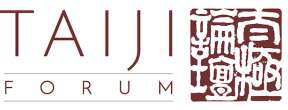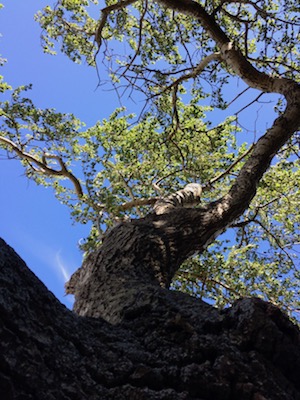
On June 30th 2012 I was diagnosed with a squamous cell carcinoma on the oesophagus – considered at the time to be terminal. After five weeks of daily radical chemo and radiotherapy I was left to recover as best I could until a consultant appointment was made to deliver the result on July 23rd 2013. “You may last till Christmas. Some last longer” was the heartless prediction “If you need anything, just go to the hospice.“ Interestingly when I got round to doing this I was told “We don’t have services for people like you. There are services in the community to deal with your situation.”
TAKING CONTROL
When it became abundantly clear that those services were not about to materialise I began to deeply understand the importance of taking control of one’s own destiny. Does a human body carry its own power to heal? How can that power be accessed? Where does one go for best advice and support? On reflection the heartlessly delivered prognosis was a kind of blessing in that it started me on a journey I would never otherwise have considered.
At the time I was fortunate in having a friend who had attended Qi Gong classes with Tina Faulkner Elders. She told me about patients whose practice of this very powerful but gentle exercise had led to quite extraordinary progress. One must avoid making false claims in such cases but I was open to a voyage of discovery and was told that Tina was delivering classes in Maggie’s – one of our local cancer support centres. Now in my third year as a student in this class I can report that I could not have made a better decision.
FEEING BETTER THROUGH MINDFUL MOVEMENT
I embarked on my Qi Gong journey in a seriously vulnerable condition. Two vertebrae in my upper spine had been broken as a result of a radiotherapy overdose. Wrong patient notes were used at the time of treatment planning and nerve damage had seriously weakened legs and spine. I could hardly stand on that first day but realised immediately that classes are geared to meet the needs of those attending. Over several months I slowly gained confidence and strength through flowing symmetrical and asymmetrical movements – gathering and releasing energy in a way that created unity between body and mind. It’s deeply meditative and I was so impressed by the way many students who had experienced harrowing illness gained strength and optimism as the weeks progressed. I had found what I was looking for. The social aspect of this experience is immeasurable with students sharing their challenges and getting warm support each from the other in a unique setting.
PHYSICALLY FITTER
In closing I would like to insert a quote from Gordon Faulkner’s book ‘Managing Stress with Qi Gong’ (2011) p.16. I have never been an enthusiast for using gymnasium equipment to enhance fitness and this sums it up.
“In the west physical fitness has become the order of the day but being fit is not the same as being healthy. Every day there are fit people who get sick. I have yet to see any machine in any health club whose purpose is to make gallbladder function better; no machine for the pancreas, the spleen; no machine for the large or small intestine, liver or kidneys.”
Qi Gong strengthens the all-important link between body and mind. It works for me and now, if our teacher is off, I am strong enough to help take the class (albeit modestly) but a notable step from that first day almost three years ago when I was unable to stand.
Author: prefered to remain anonymous
Images: Taiji Forum
Qigong Healing Series
Qigong and healing Qigong, working with the Qi (life energy), is commonly known as furthering overall health. – However, its underlying idea of Yangsheng – nurturing of life force or short: care for life – does not automatically distinguish it from other systems of caring for health, movement methods or other forms of (therapeutic) breathing techniques…
Qigong Scientific Studies Scientific studies about the efficiency of Qigong face a double challenge. For one thing, the cultural background of Qigong leads to a specific view of the human condition, which in part conflicts with the Western view on the human body, which lies at the foundation of “modern” medical research. An additional problem is that scientific standard methods of medical research, which determine today’s Qigong research, are to some extent unsuitable to capture typical aspects of Qigong, due to the Western image of medicine and its rootedness in a distinct research tradition.
Qigong studies – background and significance This part explains how Qigong studies refer to their subject Qigong (What is Qigong?). The most common kind of study is explained and its background and significance is explored…
Qigong and healing part 4 – Qigong research – meta-studies Apart from single test series (randomized controlled trials) Qigong research mainly consists of meta-studies and reviews. This text deals with their function and their typical findings. Contrary to what its name may indicate, meta-studies are not per se “better” studies than trial studies. The method behind meta-studies is to search data bases and …
Qigong and healing part 5 – The landscape of Qigong research The strictly practice-related approach of this kind of Wellness-Qigong research eclipses the theoretical problems; the contradictions mentioned above seem to be solved. – Regrettably, the opposite is true: The evidence produced in such a “practice-led” research cover the scientific dilemma, but do not contribute to its solution. Actually, with this research approach it does not matter at all, if one researches about Qigong or other methods (Yoga, Pilates, Zumba,…). The decision about the focus of the studies is neither related to a certain cognitive interest attached to the health method in question nor to the experimental design as such, but it is solely a question of taste or fashion…
Sources of medical research about Qigong and Healing The difficulty for all people interested in Qigong research is that with Qigong being a exercise system aimed at overall health the articles are scattered over different research areas. The question thus is: Where to start? Research conducted at university institutes is regularly published in respective scientific or professional journals, which differ in scope and importance from country to country…
Assessment of Publications on Qigong and Healing Some key points for the assessment of publications on Qigong and healing: What are possible clues for the assessment of a publication? Is a scientist a Qigong expert? Is a Qigong expert who really gets into the details of the art – i.e. „researches“ as part of his work – a scientist?
Overview Qigong Studies As pointed out above, until now there is NOT any conclusive evidence whatsoever, that Qigong – irrespective of the sets and methods trained – has any tendency to heal certain diseases or illnesses. It is also NOT scientifically proven that any health effects of Qigong are in some kind deeper, more powerful or in some other way more effective than any other movement related activity as e.g. conventional health gymnastics or other Western or Eastern sports – modern or traditional…
Qigong & Cancer Healing I have been a practitioner and teacher of Qigong (Yangsheng) for many years. In the scheme of things I am reasonably well qualified and have a great deal of experience. For the past few years I have been teaching Qigong professionally to cancer patients at a Maggie’s Cancer Care Centre. I can tell you categorically that I do not teach Qigong to cancer patients in order to cure their cancer. Claims of curing cancer with Qigong are not only bold but dangerous and irresponsible. They prey on the vulnerable and desperate. Even the more well known ‘cancer curing’ Qigong methods like the Gui Lin Walking Qigong has no real scientific basis for claim…
Qigong Influence on own Cancer I was initially diagnosed with prostate cancer with metastasis in the spine 4 years ago in early 2014. At this point, I was completely unaware of the existence of qigong. The following year was spent in and out of hospital. Progress of the cancer was duly halted thanks to medication and numerous radiotherapy sessions. However, some damage to the spine cannot be reversed by medical treatment. I truly believe that qigong has saved my life so far…


